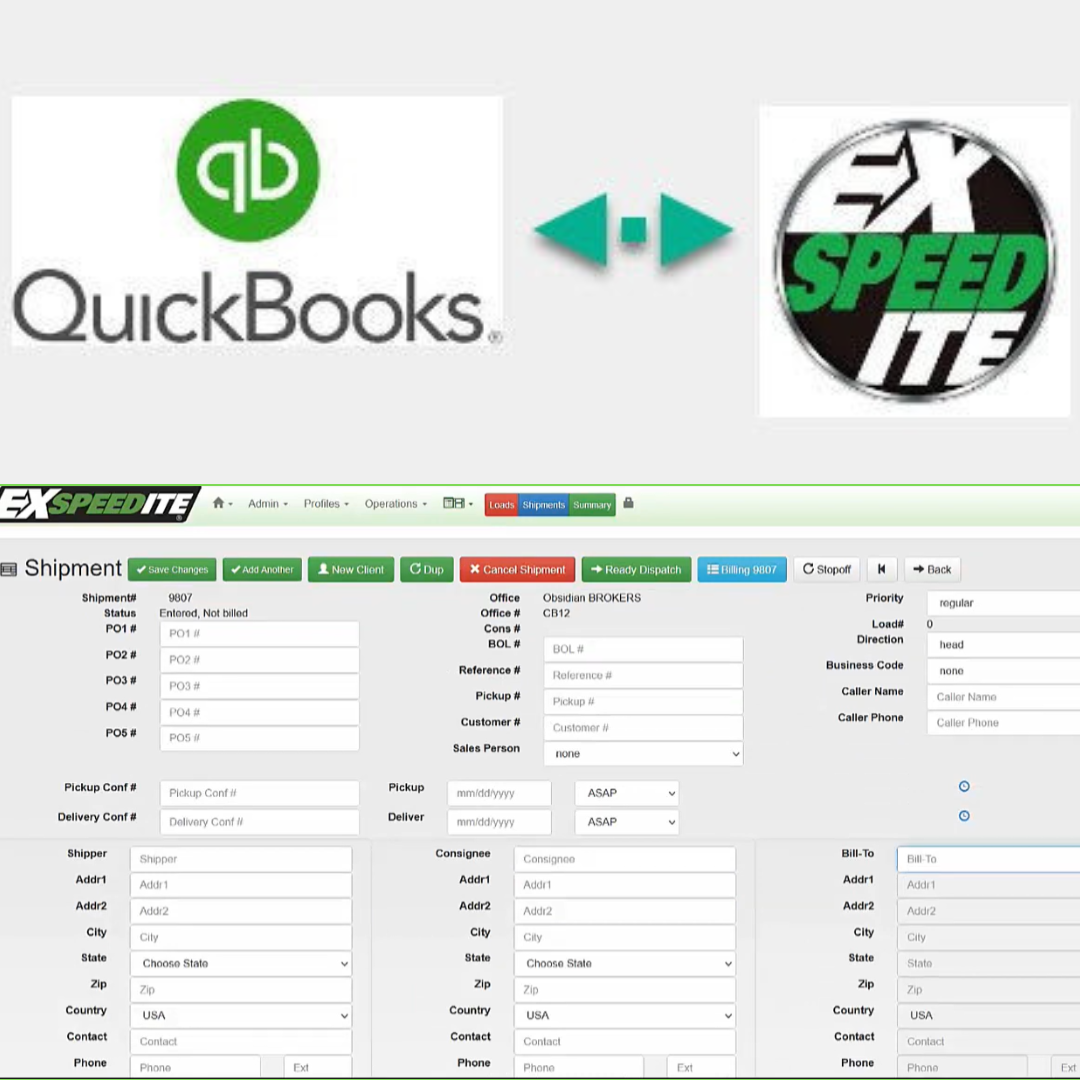What Is QuickBooks EDI Integration?
The process of linking well-known trucking QuickBooks software with Electronic Data Interchange (EDI) systems is known as QuickBooks EDI integration. Trading partners can electronically communicate standardized business documents including invoices, purchase orders, and shipping notices. Automating procedures and lowering human data entry, QuickBooks and EDI integration expedites the flow of transactional and financial data. Better management of financial information and seamless transactions are made possible by this integration of organizations’ efficiency, accuracy, and communication.
Use Cases of QuickBooks EDI
QuickBooks EDI integration offers various use cases across different industries:
- Retail Industry: Retailers can use QuickBooks EDI integration to automate the exchange of purchase orders, invoices, and shipping notifications with suppliers. This streamlines the procurement process, reduces paperwork, and improves order accuracy.
- Manufacturing Sector: Manufacturers can integrate QuickBooks with EDI to efficiently manage orders, inventory, and invoices. EDI helps automate order processing, track shipments, and reconcile transactions, leading to smoother operations and better supply chain management.
- Distribution Companies: Distributors can benefit from QuickBooks EDI integration by automating the exchange of sales orders, shipping notices, and invoices with customers and suppliers. This accelerates order fulfillment, reduces errors, and enhances customer satisfaction.
- E-commerce Businesses: E-commerce companies can use QuickBooks EDI integration to streamline order processing, inventory management, and accounting tasks. Integrating EDI with QuickBooks enables automated synchronization of sales data, inventory levels, and financial transactions, improving efficiency and accuracy.
- Transportation and Logistics: Freight carriers and logistics companies can leverage QuickBooks EDI integration to automate billing, invoicing, and payment processes with customers and vendors. This simplifies financial transactions, reduces administrative overhead, and improves cash flow management.
Overall, QuickBooks EDI integration offers a range of benefits, including increased efficiency, reduced errors, improved communication, and better compliance with trading partner requirements, making it a valuable solution for businesses across various industries.
Place Orders Through EDI Capability
With EDI capability, businesses can streamline the process of placing orders electronically, enhancing efficiency and accuracy. This feature facilitates seamless communication between trading partners, automating the order placement process and reducing manual errors in procurement.
Why Most Trucking Businesses Use EDI Software Quickbooks?
The many advantages of integrating EDI software with QuickBooks are why many trucking companies do so. First off, by automating the exchange of vital documents like invoices, bills of lading, and cargo tenders, EDI simplifies communication between carriers, shippers, and other trading partners. Smoother operations and more efficiency follow from this automation’s reduction of paperwork, speeding up transactions, and reducing of errors.
Second, because QuickBooks has such strong accounting features, it is extensively employed in the trucking sector. Payroll, costs, and revenue may all be seamlessly synchronized straight from EDI transactions when QuickBooks and EDI software are integrated. The integration guarantees correct financial reporting, lowers administrative work, and does away with manual data entry.
Integrating EDI with QuickBooks also improves supply chain openness and visibility. Better decision-making and cash flow management result from companies being able to track shipments, keep an eye on payment statuses, and more effectively reconcile accounts. All things considered, trucking companies have a complete answer for more efficient operations, better financial management, and happier customers when they combine EDI software with QuickBooks.
Benefits Of EDI Software QuickBooks
The integration of EDI software with QuickBooks offers several key benefits for trucking businesses:
- Efficiency: EDI streamlines communication by automating the exchange of documents like invoices, purchase orders, and bills of lading. This reduces manual data entry, paperwork, and processing time, leading to faster transactions and improved operational efficiency.
- Accuracy: With EDI, data is transmitted electronically in a standardized format, reducing the risk of errors associated with manual entry. Integration with QuickBooks ensures that financial data is accurately captured and synchronized, leading to more reliable accounting records.
- Cost Savings: By eliminating manual processes and reducing errors, EDI integration with QuickBooks helps businesses save on labor costs and avoid costly mistakes. Additionally, improved efficiency and accuracy can lead to better cash flow management and reduced financial discrepancies.
- Customer Satisfaction: EDI enables faster order processing, invoicing, and payment cycles, which enhances the overall customer experience. Quick and accurate transactions result in improved service levels and increased customer satisfaction.
- Scalability: As businesses grow, EDI integration with QuickBooks provides a scalable solution for managing increasing transaction volumes. The automated nature of EDI allows businesses to handle larger volumes of transactions without significantly increasing administrative overhead.
Customer Success Integrating EDI with QuickBooks
Integration of EDI software with QuickBooks offers trucking businesses enhanced efficiency, accuracy, cost savings, and customer satisfaction, making it a valuable tool for streamlining operations and improving financial management.

